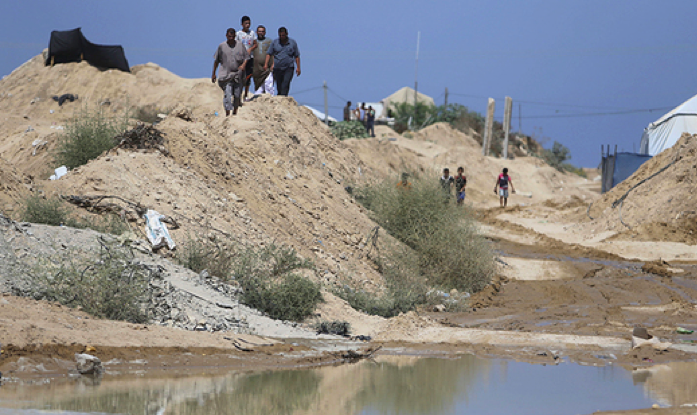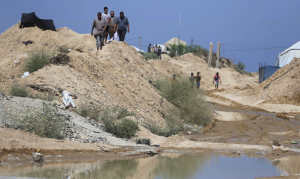
Nasser Abdullah expressed deep concerns about sinkholes that could open at any time under his home, 500 meters from the border. He explained to al-Monitor, “The tunnels run under our homes. Water flooding these tunnels will lead to their collapse and the destruction of our homes. Their foundations will be gradually degraded by salt water, even if they remained standing.â€
Abdel Majid Nassar, a professor of environmental engineering at the Islamic University of
Gaza, stated that the whole area will be transformed into marshland as the soil becomes saturated with water and liquefied, with the water seeping into subterranean aquifers.
Nassar said to al-Monitor that the foundations of homes close to the border will surely be affected, with those houses suffering damage and falling apart. He also explained that the pumping of seawater will have disastrous effects on Rafah’s agriculture and aquifers, saying, “The water will also seep toward the surface and result in the salinification of topsoil, destroying agriculture there for years. Furthermore, as the topsoil liquefies, salt water will seep into the upper layers of underground aquifers, used by local inhabitants for irrigation and in homes.â€
He pointed out that even if the Egyptian army stops pumping seawater in the coming months, removing salt from the topsoil and fixing the ensuing damage would take years and large amounts of fresh water.

